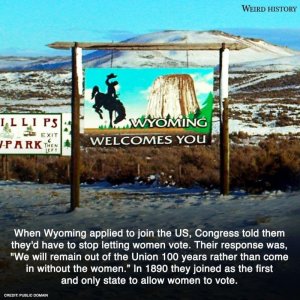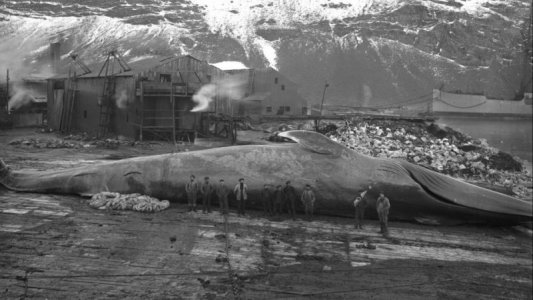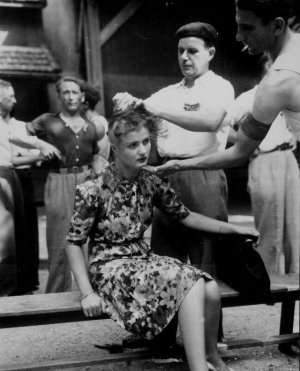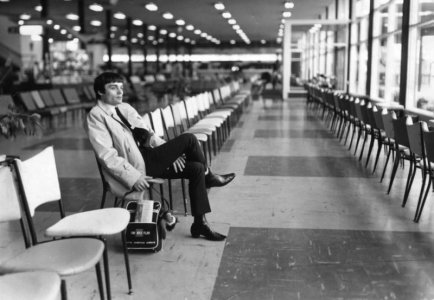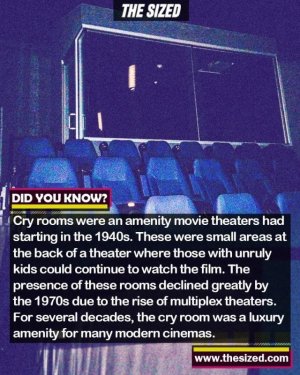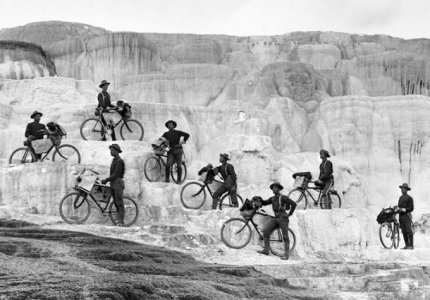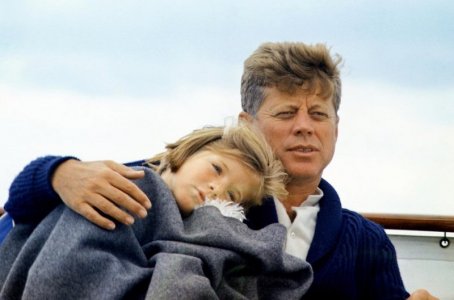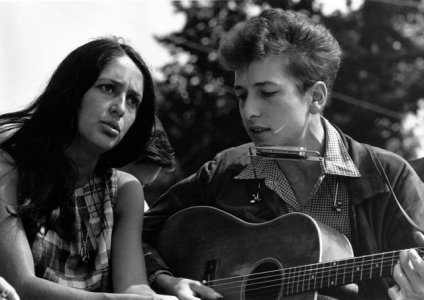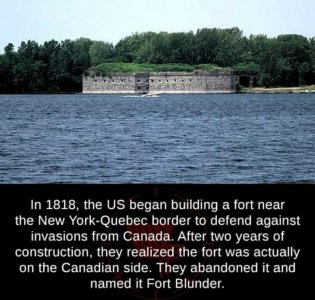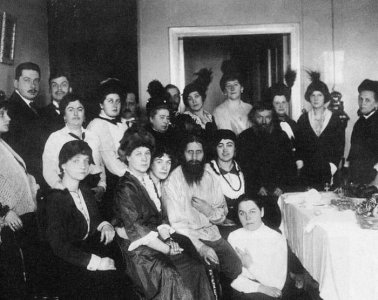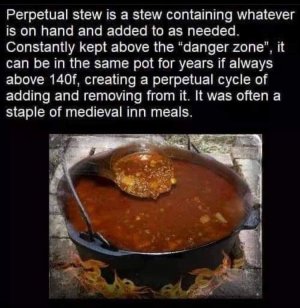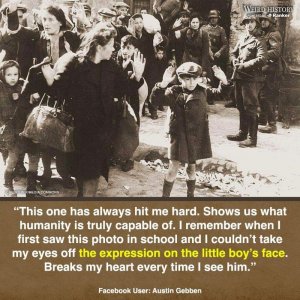You are using an out of date browser. It may not display this or other websites correctly.
You should upgrade or use an alternative browser.
You should upgrade or use an alternative browser.
History, anything goes, including pictures
- Thread starter mellowyellow
- Start date
Pappy
Living the Dream
mellowyellow
Well-known Member
A posting that is a little different. Hope it is ok to post it. Feel free to delete if it is not appropriate for this forum. After watching Jeopardy earlier, I was curious to read what transpired to this 'little' boy and did a Google and read up on this incident.
The little boy who was found clinging to an inner tube in the Florida Straits, and became famous playing in the yard of his Miami kin’s home while two countries battled over his fate, graduated from a military academy in 2016 with a degree in industrial engineering.
His journey to fame began with the international incident that exploded after 6-year-old Elian was found in the water on Thanksgiving Day 1999.
His mother, Elizabeth, and nine other people who were taking part in the clandestine journey drowned after their rickety boat capsized in high seas while they tried to make their way from Cuba to the United States.
Elian’s father, Juan Miguel, fought to bring the boy back to Cuba. Cuban leader Fidel Castro led massive protests on the island demanding Elian’s return.
The case became a flashpoint in the already boiling feud between supporters and opponents of Castro’s revolution.
Elian’s Miami relatives argued if the boy went back to Cuba, he would become a brainwashed trophy for Castro in his long-running feud with the US.
![170823173228-elian-gonzalez-split-super-tease[1].jpg 170823173228-elian-gonzalez-split-super-tease[1].jpg](https://www.seniorforums.com/data/attachments/196/196550-585119daf6172471d39e03a9fc91fd27.jpg)
The little boy who was found clinging to an inner tube in the Florida Straits, and became famous playing in the yard of his Miami kin’s home while two countries battled over his fate, graduated from a military academy in 2016 with a degree in industrial engineering.
His journey to fame began with the international incident that exploded after 6-year-old Elian was found in the water on Thanksgiving Day 1999.
His mother, Elizabeth, and nine other people who were taking part in the clandestine journey drowned after their rickety boat capsized in high seas while they tried to make their way from Cuba to the United States.
Elian’s father, Juan Miguel, fought to bring the boy back to Cuba. Cuban leader Fidel Castro led massive protests on the island demanding Elian’s return.
The case became a flashpoint in the already boiling feud between supporters and opponents of Castro’s revolution.
Elian’s Miami relatives argued if the boy went back to Cuba, he would become a brainwashed trophy for Castro in his long-running feud with the US.
![170823173228-elian-gonzalez-split-super-tease[1].jpg 170823173228-elian-gonzalez-split-super-tease[1].jpg](https://www.seniorforums.com/data/attachments/196/196550-585119daf6172471d39e03a9fc91fd27.jpg)
Last edited:
JonSR77
Senior Member
First Ladies’ Fashions
The First Ladies at the Smithsonian
https://americanhistory.si.edu/first-ladies/first-ladies-fashions
JonSR77
Senior Member
View attachment 219624
Shackleton and Team (1914) in South Georgia islands with enough whale meat for 26 men and 61 sled dogs before embarking on the ill-fated journey to Antarctica
I love the history of Shackleton. Amazing story and an amazing man. Powerful and brilliant leader. Any lesser of a man and he would have lost his entire crew...but he saved every single last one.
JonSR77
Senior Member
wonderful history! I had not known. Back in the year 2000, my wife and I drove up to Canada to visit her cousin. On the way, we stopped at the Women's Rights Museum. Was a wonderful experience. I became a huge fan of Elizabeth Cady Stanton.
JonSR77
Senior Member
A posting that is a little different. Hope it is ok to post it. Feel free to delete if it is not appropriate for this forum. After watching Jeopardy earlier, I was curious to read what transpired to this 'little' boy and did a Google and read up on this incident.
The little boy who was found clinging to an inner tube in the Florida Straits, and became famous playing in the yard of his Miami kin’s home while two countries battled over his fate, graduated from a military academy in 2016 with a degree in industrial engineering.
His journey to fame began with the international incident that exploded after 6-year-old Elian was found in the water on Thanksgiving Day 1999.
His mother, Elizabeth, and nine other people who were taking part in the clandestine journey drowned after their rickety boat capsized in high seas while they tried to make their way from Cuba to the United States.
Elian’s father, Juan Miguel, fought to bring the boy back to Cuba. Cuban leader Fidel Castro led massive protests on the island demanding Elian’s return.
The case became a flashpoint in the already boiling feud between supporters and opponents of Castro’s revolution.
Elian’s Miami relatives argued if the boy went back to Cuba, he would become a brainwashed trophy for Castro in his long-running feud with the US.
View attachment 219631
I remember the incident. I remember thinking how sad it was for the little boy to be caught in this political war. I really did not care who was right politically. I just thought the tug-of-war was going to ruin the little guy. I am sure, to this day, he still has issues with all problems it must have caused.
mellowyellow
Well-known Member
Very chic, but all that ironing.First Ladies’ Fashions
The First Ladies at the Smithsonian
https://americanhistory.si.edu/first-ladies/first-ladies-fashions
mellowyellow
Well-known Member
mellowyellow
Well-known Member
Pappy
Living the Dream
JonSR77
Senior Member
All the Presidents’ Tables: Abraham Lincoln’s Inaugural Menus...
https://gherkinstomatoes.com/2008/1...ntial-dining-through-american-history-part-i/
For the inaugural luncheon on March 4, 1860, the menu was rather simple:Mock Turtle Soup
Corned Beef and Cabbage
Parsley Potatoes
Blackberry Pie
Corned Beef and Cabbage
Parsley Potatoes
Blackberry Pie
Coffee
+++++++++++++
of the Presidential Inauguration Ball
in the
City of Washington, D.C.
On the 6th of March, 1865
Oyster Stew
Terrapin Stew
Oysters, Pickled
BEEF
Roast Beef
Filet of Beef
Beef à la mode
Beef à l’anglais
VEAL
Leg of Veal
Fricandeau
Veal Malakoff
mellowyellow
Well-known Member
mellowyellow
Well-known Member
JonSR77
Senior Member
View attachment 219882
President John F. Kennedy sits with his daughter Caroline aboard the yacht Honey Fitz off the coast of Hyannis, Massachusetts. August 25, 1963
My wife and I took a vacation at Cape Cod about 20 years ago. There was a little fish shack restaurant and it had a letter on the wall, from JFK. Apparently, it was one of his favorite places..
I love JFK and that whole administration. I think they were very positive for America and Americans. So sad that the dream was crushed.
JonSR77
Senior Member
View attachment 219883
Folk musicians Joan Baez and Bob Dylan at the so-called „March on Washington“ on August 28, 1963. The demonstration with over 200,000 people was one of the highlights of the civil rights movement in the States. Martin Luther King gave his "I have a dream" speech there.
They were a great couple. Kind of sad that they didn't stay together. What do you mean by "the so-called 'March on Washington?"
That was the name, wasn't it? I think so...
Pappy
Living the Dream
mellowyellow
Well-known Member
Paco Dennis
SF VIP
- Location
- Mid-Missouri
This not a political post. It is about how a legal master mind invented a whole new way to interpret anti- trust law. These ideas paved the way for massive inequality. It gave advantage to the haves, and the have not's would have not.
? was a liar, who invented a fictional history of US anti-monopoly law in which the lawmakers who authored, debated and passed those laws didn't actually mind monopolies at all — all they cared about was "consumer harm" (that is, the prices paid by the public rising in the short term after a company or handful of companies cornered their markets); and "collusion" (especially trade unions, consumer groups, and other checks on corporate power).
?'s ideas were radioactively implausible, but they did have an important advantage in the "marketplace of ideas": they stood to make the richest people in America much, much richer, and so Bork found no shortage of corporate backers who helped him create a network of judicial "education" programs, political campaigns, think tankies, and intellectually dishonest academics who would line up behind his idea. Every president since X has expanded ?'s doctrine, allowing for even more aggressive market concentration, producing a country (and a world) where a handful of firms dominate virtually every industry, from telcoms to talent agencies, wrestling to eyewear, to Big Tech.
And while all this has made the 0.1% a lot richer, the major impact has been to increase the power of corporations over governments, at the expense of democratic control and transparency. Once firms are concentrated, they find it easier to agree on a common set of lobbying goals, and they have the excess capital ("monopoly rents") to spend on achieving those goals.
This corporate power was what animated the lawmakers who crafted US anti-monopoly laws: the corrupting influence of trusts and the robber-barons who ran them were seen as antithetical to good governance, national welfare, and widespread prosperity. Corporate concentration was a force for political destabilization and corruption, and the fact that this also meant higher prices was important, but not central, to US anti-monopoly policy.
? was a liar, who invented a fictional history of US anti-monopoly law in which the lawmakers who authored, debated and passed those laws didn't actually mind monopolies at all — all they cared about was "consumer harm" (that is, the prices paid by the public rising in the short term after a company or handful of companies cornered their markets); and "collusion" (especially trade unions, consumer groups, and other checks on corporate power).
?'s ideas were radioactively implausible, but they did have an important advantage in the "marketplace of ideas": they stood to make the richest people in America much, much richer, and so Bork found no shortage of corporate backers who helped him create a network of judicial "education" programs, political campaigns, think tankies, and intellectually dishonest academics who would line up behind his idea. Every president since X has expanded ?'s doctrine, allowing for even more aggressive market concentration, producing a country (and a world) where a handful of firms dominate virtually every industry, from telcoms to talent agencies, wrestling to eyewear, to Big Tech.
And while all this has made the 0.1% a lot richer, the major impact has been to increase the power of corporations over governments, at the expense of democratic control and transparency. Once firms are concentrated, they find it easier to agree on a common set of lobbying goals, and they have the excess capital ("monopoly rents") to spend on achieving those goals.
This corporate power was what animated the lawmakers who crafted US anti-monopoly laws: the corrupting influence of trusts and the robber-barons who ran them were seen as antithetical to good governance, national welfare, and widespread prosperity. Corporate concentration was a force for political destabilization and corruption, and the fact that this also meant higher prices was important, but not central, to US anti-monopoly policy.
? offered a radical reinterpretation of antitrust law. Inventing a legislative history out of whole cloth, he argued that Congress enacted the Sherman Act only to protect "consumer welfare" and not to control the broader economic and political power of corporations. Further, based on hypotheses with little or no empirical support, he asserted that mergers and trade restraints allowed businesses to lower costs and improve services and thereby benefit consumers.
? did believe in one antitrust prohibition. He argued that collusion among rivals should be aggressively prosecuted. His conception of collusion swept broadly and did not differentiate, for example, between pharmaceutical companies conspiring to raise prices on prescription drugs and public defenders banding together to obtain a living wage.
In the 1970s and 1980s, corporate attorneys, citing and quoting ? on behalf of their clients, found increasingly receptive audiences in the federal courts and agencies. The Supreme Court, starting in the X years, and the Department of Justice and Federal Trade Commission, beginning with X, were eager to read the theories of ? into case law and policy. (In 1982, X appointed ? as a court of appeals judge and gave him the opportunity to directly rewrite antitrust doctrine.) For instance, in a 1979 decision, the Supreme Court, quoting ?'s Antitrust Paradox and relying on his fabricated account of congressional intent, stated "Congress designed the Sherman Act as a 'consumer welfare prescription.'"
?'s intellectual clout reflected a larger shift in judicial philosophy during the period. The big business-funded law and economics movement preached a particular brand of economic theory (aligned with Bork's) through judicial training programs. They persuaded federal judges to protect the privileges of the wealthy and large corporations.
Pappy
Living the Dream
JonSR77
Senior Member
View attachment 220055
The Russian mystic Rasputin is shown at a Ghorokhovo street flat in Saint Petersburg, Russian Empire, 1914.
That guy always creeped me out. Period.



